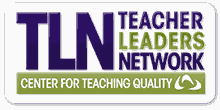However, my list of thankful-fors is much longer when I consider the non-monetary benefits of my job.
First of all, I am thankful for my students. Teaching middle schoolers comes with its ups and down, certainly, but as a whole, I enjoy their sense of humor, their enthusiasm for life, and their quizzical natures. Nothing makes my day more than when my students come in smiling, eager for whatever the day holds. Little notes of kind words left on my desk go farther than the adolescent hand that scribbles them could ever know. The times they "get it", with bolt of lightning and a rumble of thunder, make all the days they don't get it, worthwhile.
I am also thankful for parents who honestly care about their students and want to support the school and its efforts to educate their child. Often, we, as educators, become irritated when the 'helicopter" parent keeps too close of tabs on our students, insisting on frequent updates, or extra help for their child, or questioning our curriculum or pedagogy. But in reality, I know I personally prefer a parent who cares, who wants the best for their child, who is involved and insistent, even to a fault, to those who do not have any interest in what the student does at school. There is nothing more disheartening than a phone call home that ends with the parent's comments making it crystal clear that this child is MINE from 8:00 until 3:08 each day, and nothing that happens during that timeframe is of concern to the parent. These parents not only do not encourage homework completion or support the school in discipline issues, they often make matters worse by their animosity towards school, adminstrators, and teachers. These parents make the helicopter ones seem much more pleasant!
I am thankful for supportive adminstrators during my career, the ones who promote and encourage teacher leadership and autonomy. Teaching is not a top down business, and adminstrators who understand empowering teachers to lead, learn and create for and with other teachers is powerful, make teaching more rewarding.
Last but not least, I am thankful for supportive professional learning communities which I am a part of. Teacher Leaders Network provides me a group of educators with whom I can share, grow and lead. This experience has enriched me in countless ways. I am thankful for the Center for Teaching Quality for their belief in and their support of this group. Another professional group for which I am especially thankful is the MiddleTalk listserve supported by National Middle School Association. This group of amazing middle level educators provides me with constant inspiration to grow in my teaching of adolescents. Lastly, I am thankful for the National Writing Project which gives voices to teachers to share with students. While other groups have helped me become the teacher I am, these three in particular shine like beacons in my professional journey.
Thankfulness is an ongoing experience, one we should visit often. But this November, I take the to time to publicly thank all the members of these groups who have helped me along my way.

















